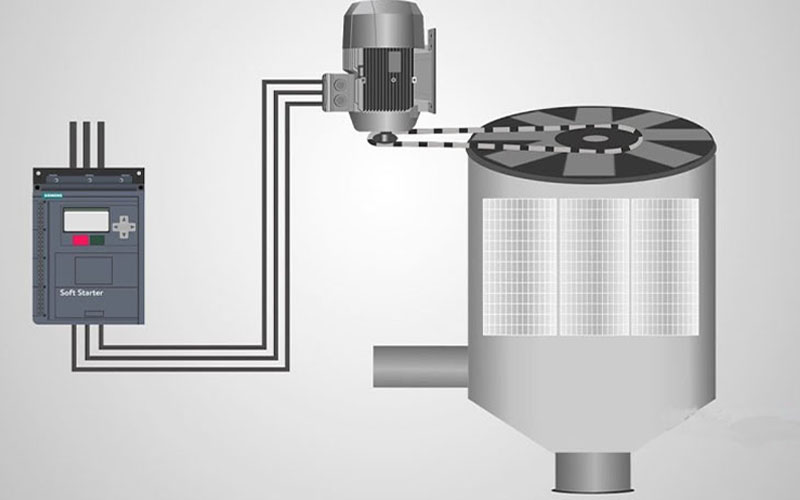A motor soft starter is a device used with AC electrical motors to temporarily reduce the load and torque in the powertrain and electric current surge of the motor during start-up. This reduces the mechanical stress on the motor and shaft, as well as the electrodynamics stresses on the attached power cables and electrical distribution network, extending the lifespan of the system.
A soft starter continuously controls the three-phase motor’s voltage supply during the start-up phase. This way, the motor is adjusted to the machine’s load behavior. Mechanical operating equipment is accelerated smoothly. This lengthens service life, improves operating behavior, and smooth work flows. Electrical soft starters can use solid state devices to control the current flow and therefore the voltage applied to the motor. They can be connected in series with the line voltage applied to the motor, or can be connected inside the delta (Δ) loop of a delta-connected motor, controlling the voltage applied to each winding. Solid state soft starters can control one or more phases of the voltage applied to the induction motor with the best results achieved by three-phase control.
Soft starters controlled via two phases have the disadvantage that the uncontrolled phase will always shows some current unbalance with respect to the controlled phases. Typically, the voltage is controlled by reverse-parallel-connected silicon-controlled rectifiers (thyristors), but in some circumstances with three-phase control, the control elements can be a reverse-parallel-connected SCR and diode.

